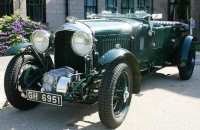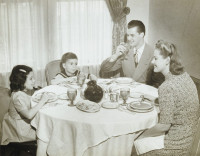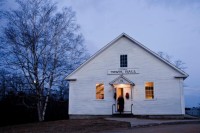The fire started innocently. A bottle fallen out of the trash barrel landed on its side, rolled to the edge of the parking lot, and came to rest up against a pile of pine needles swept into a row by the rain and wind. A strong sun shone through the clear glass, and the light was refracted and focused, becoming a hot line upon the needles. Heat grew, smoke rose.
“Air one, turn right ninety degrees, come along the ridge and make your drop at Cooper Mountain peak. We’ll need a fast turn-around on this one. We have a hotshot crew down there.”
The incident commander turned back to the ground crew chiefs gathered for the mid-day meeting. The fire had recently jumped two lines and was headed straight for the town of Washaw.
“Okay, everyone, listen up. Crew priorities are this: One, stay safe. No one under me dies. Two, the fire lines have to go from fifty yards to seventy five. That means more dozers to come into the area, and the ground crews direct them as needed. Until the weather breaks, we’re fighting to slow the spread, not kill it. Three, stay safe. All crews are equipped with shelters for a fast rollover, but if they are caught in the middle of this, we’re looking at memorial services, and that will piss me off plenty. Situational awareness by all crew commanders, and keep me informed of any need for extractions. Choppers can be anywhere in five minutes.”
The meeting ended on a positive note, with an anticipated drop in the temperature during the week. That would slow the fire down enough to control it. Maybe.
Deep in the middle of the mountains, right on the shoulder of an un-burned ridge, a hotshot crew was prepping their equipment and getting ready for another day of fun in the sun. The fire was strong today, but the dozers had been busy overnight and they were tasked with cleaning up fire breaks to keep the blaze contained until it burned itself out. Ten men and women, many veterans, were doing their best to help beat back the fire that had been burning through the dry mountain forests of eastern California.
Hand tools, Pulaskis and machetes, shovels and McLeods were wielded by experienced hands. This was the third year this crew had been together, and they worked as a team.
They spread out in a long line along the scar the dozers had left for them. The fire, when it reached them, would come to a broad gap in the trees with nothing but ground slash and dirt left to it. The fire, without fuel, would die in less than fifteen minutes. The crew members set to work clearing the slash, splinters of wood left by the D-8’s and D-9’s as the big dozers swept in tandem back and forth across the hill.
Chris Murphy was the first to hear the fire approaching. Morgan Fairchild was the first to smell it, and Angela Dickson was the first to die. The fire came at them in a running line, fed by a copse of conifers hidden in the valley. Angie yelled, had time to key the mike on her radio, and was enveloped by a tidal wave of flames. Chris heard the squeal of the mike as it melted, Angie’s hand curled tightly around the button.
Morgan had the time to call all team members into a central retreat zone, and was calling for extraction when the fire found the edge of the clearing. Everyone had their aluminized shelters deployed, but they stood together watching the spot where they knew Angela had been clearing. The fire had become so intense with the fuel from the pines that it swept across the clearing, fueled by the turpentine vapors heated to plasma and saturating the air. The crew died standing close to their shelters, smothered before they were incinerated.
In the Fall, the seeds released by the burned pine cones sprouted, fed by the autumn rains.




